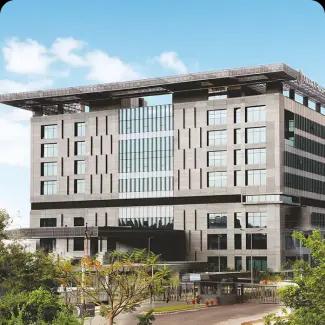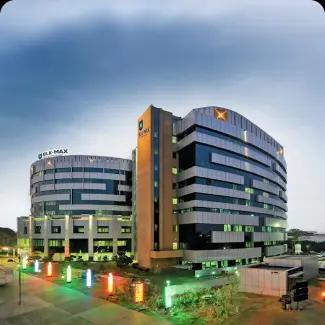
Vagus Nerve Stimulation (VNS)
It’s a medical procedure where a device is implanted into the major nerve in the body to stimulate the Vagus Nerve. This helps in regulating the bodily functions effectively. It finds extensive use in treating epilepsy, depression, and other conditions like migraine and/or inflammatory disorders.
Free Pick up and Drop
No Cost EMI
Post Surgery Care
It’s a medical procedure where a device is implanted into the major nerve in the body to stimulate the Vagus Nerve. This helps in regulating the bodily functions effectively. It finds extensive use in treating epilepsy, depression, and other conditions like migraine and/or inflammatory disorders.
Symptoms Of Vagus Nerve Stimulation (VNS)
Symptoms
Types of conditions
There are three main types of Vagus Nerve Stimulation (VNS)
Epilepsy Treatment
Depression Management
Stroke Rehabilitation Aid
Epilepsy Treatment
VNS is authorized as supplementary therapy for focal (partial) seizures in adults and children aged four and above when seizures persist despite medication
SYMPTOMS OF VAGUS NERVE DAMAGE
-
Hoarseness or voice changes Vagus nerve damage can disrupt the control of the vocal cords, leading to alterations in speech.
-
Difficulty swallowing Impaired vagus nerve function may result in challenges with swallowing or a sensation of throat constriction.
-
Nausea, vomiting, or bloating Vagus nerve dysfunction can disrupt digestive processes, causing symptoms such as nausea, vomiting, or bloating.
-
Abnormal heart rate Damage to the vagus nerve can affect its regulatory role in heart function, leading to irregular heart rhythms or palpitations.
BENEFITS OF VNS
- Improved Seizure Control : Many children see a big improvement in how often or how severe their seizures are, with around 30-50% of them getting better.
- Helps Specific Syndromes : For kids with Lennox-Gastaut syndrome, about 65% have more than half fewer seizures.
- Works for Different Seizures : It helps with all kinds of seizures, even if they happen in different ways.
- Less Time in the Hospital : Kids who keep going to the hospital because of their seizures often feel better with VNS therapy.
- Stops Seizures : Sometimes, it can stop long seizures or groups of them from happening.
- Mood and Quality of Life : Many kids feel happier, more awake, and just better overall, even if their seizures don’t happen less often.
- Takes Time to Work : It might take a while, maybe even a few months, before seeing a change in how often seizures happen.
- Long-Term Help : Unlike some medicines, VNS usually keeps working well over the years, with more kids seeing fewer seizures after a few months or even years.
TYPES OF CONDITIONS
- Epilepsy:
VNS involves the implantation of a device that delivers electrical impulses to the vagus nerve, helping to reduce the frequency and severity of epileptic seizures.
2.Treatment-Resistant Depression:
VNS therapy delivers electrical stimulation to the vagus nerve, potentially alleviating symptoms of depression in individuals who have not responded to traditional antidepressant medications.
3.Chronic Migraine:
VNS may be used as a treatment option for chronic migraine headaches, with electrical stimulation targeting the vagus nerve to help modulate pain perception and reduce migraine frequency.
4.Alzheimer's Disease:
VNS therapy is being explored as a potential treatment approach for Alzheimer's disease, aiming to improve cognitive function and slow disease progression through neuromodulation of the vagus nerve.
5.Heart Failure:
VNS has shown promise in the management of heart failure by modulating autonomic nervous system activity through stimulation of the vagus nerve, potentially improving cardiac function and reducing heart failure symptoms.
DIAGNOSIS
Vagus Nerve Stimulation (VNS) is utilized in the treatment of various disease conditions, including epilepsy, treatment-resistant depression, chronic migraine, Alzheimer's disease, and heart failure. In epilepsy management, VNS therapy aims to reduce seizure frequency and severity by delivering electrical impulses to the vagus nerve. For individuals with treatment-resistant depression, VNS may offer relief by modulating mood-regulating brain circuits. Additionally, VNS has shown promise in alleviating chronic migraine headaches and potentially slowing cognitive decline in Alzheimer's disease patients. In heart failure management, VNS therapy targets autonomic nervous system modulation to improve cardiac function and reduce symptoms.
RISK FACTORS
-
Surgical procedures involving the neck or chest, such as thyroid surgery or cardiac surgery.
-
Traumatic injuries to the head, neck, or chest, including accidents or penetrating injuries.
-
Inflammatory conditions such as autoimmune disorders or infections affecting the nervous system.
-
Chronic diseases like diabetes or cardiovascular conditions that may indirectly affect nerve health.
-
Prolonged exposure to environmental toxins or chemicals that can damage nerve tissue.
-
Certain neurological disorders such as multiple sclerosis or Parkinson's disease, which may impact nerve function.
PREPARING FOR SURGERY
Before your surgery, your healthcare provider will perform a physical exam. You may have blood drawn to ensure you don’t have any health problems that could cause concern.
You will also be administered an antibiotic to reduce the risk of infection around the incision site. Prior to the surgery, your neck and chest will be cleaned thoroughly. Depending on the procedure, you might receive local anesthesia to numb the surgical areas, or you may undergo general anesthesia to induce sleep throughout the surgery.
Understanding the Process
VNS increases blood flow to essential areas in the brain and alters electric activity to avoid seizures. It also increases the levels of neurotransmitters in your brain. By doing so, it regulates these neurotransmitters and regulates mood. It can also stimulate the motor cortex area in your brain, thus helping you with movement. This is particularly helpful when stroke involves loss of blood supply to this particular area.
The surgical implantation of the device is typically performed on an outpatient basis, although some surgeons may advise an overnight stay.
TREATMENT DETAILS
Types of VNS
Invasive Vagus Nerve Stimulation (VNS)
-
Involves surgical implantation of a device typically placed under the skin of the chest, with leads wrapped around the vagus nerve in the neck.
-
The device delivers regular electrical impulses to the vagus nerve, modulating its activity to treat conditions such as epilepsy or depression.
Non-invasive Vagus Nerve Stimulation
-
Utilizes external devices that deliver electrical stimulation to the vagus nerve without the need for surgery.
-
Non-invasive methods include transcutaneous vagus nerve stimulation (tVNS), where electrodes are placed on the skin overlying the vagus nerve's pathway, and techniques like auricular vagus nerve stimulation (aVNS), targeting the ear.
-
Non-invasive VNS is being explored for various applications, including pain management, mood disorders, and inflammatory conditions, offering a less invasive alternative to traditional VNS approaches.
Technology Used
- Pulse Generator: A device implanted under the skin of the chest that delivers electrical impulses to the vagus nerve at predetermined intervals or in response to detected abnormalities.
- Electrodes: Surgically placed around the left vagus nerve in the neck, electrodes facilitate the transmission of electrical signals for neuromodulation.
- Programming Software: Allows healthcare providers to adjust VNS settings, including stimulation parameters and timing, to optimize therapeutic outcomes for individual patients.
- Responsive Neurostimulator (RNS): An advanced form of VNS that includes a responsive neurostimulator device implanted within the skull to detect and respond to abnormal brain activity in epilepsy patients.
RECOVERY
Vagus nerve stimulation (VNS) device surgery is quick and effective, allowing patients to resume regular activities within 48 hours. Post-surgery care involves device adjustment and operation, with patients visiting their healthcare provider within two to four weeks. The device's longevity and functionality are crucial for long-term management, with regular follow-up appointments and battery replacements required every six years. A minor incision in the chest wall is performed when battery levels drop, ensuring uninterrupted treatment continuity.
Your journey to good health begins here

Accredited Hospitals
Nationally accredited hospitals for high-quality care

Multi-language Support
Convey your needs in the language you're most comfortable in

Travel Booking Assistance
Seamless booking assistance for your healthcare journey

Personalised Treatment Plans
A treatment journey tailored to all your preferences and needs

Unparalleled Hospitality
Experience exceptional hospitality during your stay

Easy Medical Visa Approvals
Dedicated assistance for medical visa requirements
Plan your healthcare journey with Karetrip!
India’s Best Hospitals are Partnered With Karetrip
Access World-Class facilities from top Hospitals across India
Consult with India’s most experienced doctors
Experience premium care from India’s leading specialists

Dr. Sagari Gullapalli
Neurologist
7+ Years Of Experience

Dr. Venkata Swamy Pasupula
Neurologist
24+ Years Of Experience

Dr. Neetu Ramrakhiani
Neurologist
21+ Years Of Experience
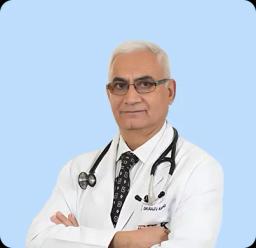
Dr. Rajiv Anand
Neurologist
37+ Years Of Experience
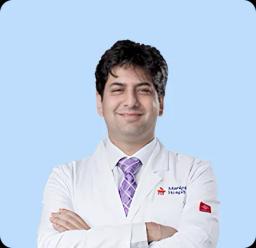
Dr. Abhinav Raina
Neurologist
38+ Years Of Experience

Dr. Mohit Bhatt
Neurologist
34+ Years Of Experience
Cost Estimation
Learn about the expenses involved in the procedure and what factors affect them.

The cost of Vagus Nerve Stimulation varies depending on factors such as consultation fees, diagnostic tests, type of surgery, admission fees, patient's medical condition and age, type of hospital, room selection, and location.
Know More The cost of VNS varies from hospital to hospital in India; here is a glimpse of cost ranges across different cities in India.
The average cost of the Vagus Nerve Stimulation (VNS) in India is around ₹ 2,50,000 to ₹ 5,00,000.
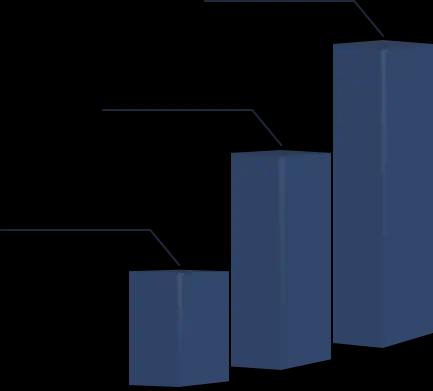
₹ 5,00,000
High Cost
₹ 3,50,000
Average Cost
₹ 2,50,000
Low Cost
The LIST of AVERAGE COST of the Vagus Nerve Stimulation (VNS) across TOP 7 cities in India in Indian Rupee (INR) is as follows :
City
Lowest Cost
Average Cost
Highest Cost
Hyderabad
₹ 2,50,000
₹ 3,50,000
₹ 5,00,000
Greater Noida
₹ 2,50,000
₹ 3,50,000
₹ 5,00,000
Bhubaneswar
₹ 2,50,000
₹ 3,50,000
₹ 5,00,000
Delhi
₹ 2,50,000
₹ 3,50,000
₹ 5,00,000
Nagpur
₹ 2,50,000
₹ 3,50,000
₹ 5,00,000
Indore
₹ 2,50,000
₹ 4,00,000
₹ 5,00,000
Bangalore
₹ 2,50,000
₹ 3,50,000
₹ 5,00,000
Commonly Asked Questions
Is vagus nerve stimulation a cure for epilepsy?
No, vagus nerve stimulation isn't a cure for epilepsy. Most people will continue to have seizures, but many may experience up to a 50% reduction in seizure frequency and intensity.
How long does it take to see improvements in depression symptoms with vagus nerve stimulation?
It may take several months of treatment before noticing improvements in depression symptoms. However, it's essential to note that vagus nerve stimulation doesn't work for everyone and isn't meant to replace traditional treatments.
What does it feel like to have the vagus nerve stimulation device?
Patients usually don't feel the stimulation when the device is on. However, some may experience a tickling sensation in the throat or neck, hoarseness, or a mild cough.
What are the risks associated with vagus nerve stimulation?
Common risks include infection, pain, inflammation at the incision sites, and potential damage to the vagus nerve or surrounding structures.
What is the recovery time following vagus nerve stimulation device surgery?
Patients can typically return to their everyday activities within 48 hours after device implantation, as the stitches used are self-absorbing and do not require removal.

Do you still have a query?


"I had a successful surgery at Fortis Escorts Hospital, and it was all thanks to Karetrip's help in finding the right hospital for me. The entire process was smooth and stress-free, with Karetrip handling all the arrangements and answering any questions I had. The medical team at the hospital was outstanding, and the facilities were top-notch. I highly recommend Karetrip to anyone looking for a tension-free healthcare experience."
Read MoreFatima
Chattogram


"Thanks to Karetrip, I got connected with MAX Hospital in New Delhi. The team guided me through every step – from finding the right doctor to handling travel and visas. They made a daunting process feel like a breeze. The care I received at MAX Hospital was outstanding, and I can't thank Karetrip enough for making it possible. They truly put patients first and go the extra mile to ensure a smooth healthcare journey. I'm grateful beyond words!"
Read MoreHasan
Dhaka


"At first, I was unsure about having a medical procedure done in a foreign country. However, Karetrip's team at Indraprastha Apollo Hospital made me feel much better. The hospital was very clean, modern, and had everything they needed to help me. The staff were very kind and did everything they could to make me feel comfortable. I'm really happy with how my treatment turned out, and I appreciate Karetrip for making it easy and stress-free."
Read MoreImran
Sylhet
 Google Reviews4.9/5
Google Reviews4.9/5




I had a successful surgery at Fortis Escorts Hospital, and it was all thanks to Karetrip's help in finding the right hospital for me. The entire process was smooth and stress-free, with Karetrip handling all the arrangements and answering any questions I had. The medical team at the hospital was outstanding, and the facilities were top-notch. I highly recommend Karetrip to anyone looking for a tension-free healthcare experience.
Fatima
Chattogram
 Google Reviews4.9/5
Google Reviews4.9/5







